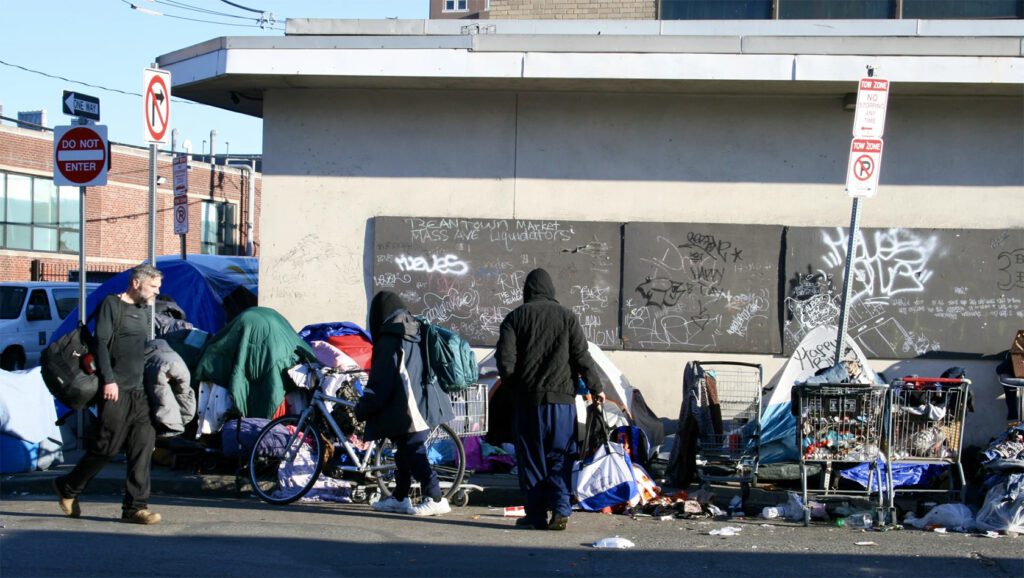City Council delays tent ban at Mass and Cass
Next hearing to address the matter slated for sometime in September

A new city ordinance that would ban tents from the Mass and Cass area is one step further away after it was referred out to the Boston City Council Committee on Government Operations, frustrating some who want quicker action.
The ordinance, proposed by Mayor Michelle Wu on Aug. 28, would prohibit encampments of unhoused people, increase policing and block off some streets in the area of Melnea Cass Boulevard and Massachusetts Avenue after several violent incidents this summer.
At-large Councilor Michael Flaherty motioned to pass the ordinance during an Aug. 30 hearing, but it failed following objection from District 3 Councilor Frank Baker from Dorchester.
Flaherty, speaking passionately about the issue outside of the council’s chambers, told reporters the tents need to come down immediately.
“What are we waiting for? It needs to happen yesterday. Those tents have to go,” Flaherty said. “Those poor souls need to get into treatment and recovery. We need detox beds. They need to be detoxed first and foremost. You can’t give folks keys to a house if they’re not straight and sober.”
Flaherty said he made the motion to stop the “predatory behavior” such as drug use and violence that happens in the encampments.
“I want the tents down. If I was the mayor, there would be no tents there,” Flaherty said.
District 5 Councilor Ricardo Arroyo from Hyde Park, who chairs the Committee on Government Operations, said the next hearing on the matter will take place sometime in September.
Arroyo said he and others have several questions about issues such as shelter availability, transportation and criminal penalties, which is why people want further hearings before passing the ordinance.
He also said it would give the council time to review any legal issues. The local chapter of the ACLU could challenge the ordinance, if passed. Last week, the ACLU of Massachusetts’ executive director Carol Rose told GBH News in a statement that “cities and towns cannot target people for criminal law enforcement operations just because they are sleeping and taking shelter outside when there are no adequate alternatives.”
“There’s real questions here about how did you guys put this together in a way that would withstand whatever laws we currently have in the commonwealth regarding people in housing,” Arroyo said.
In her proposed ordinance, Wu said the tents “have been shielding much of the dangerous activity in the area and undermining the ability of providers to safely and effectively deliver services.” She wrote in the ordinance that “any delay to removing these structures presents an immediate potential harm to individuals inside the structures and to members of the public in the vicinity.”
The ordinance will pass automatically after 60 days if the City Council does not take action in time.
“I think when we have folks who are in deep, deep despair and who are seriously suffering from substance use disorder, what I have personally seen work is stabilization,” Arroyo said.
Larry Calderone, president of the Boston Police Patrolman’s Association, said time is of the essence when it comes to taking down the tents. “This is not something we can continue to wait on,” he told GBH News.
Calderone said officers are prepared to carry out any operations plan that may come down from Boston Police Commissioner Michael Cox.
The 60-day deadline on the ordinance is Oct. 30.
Alexi Cohan is a producer on GBH’s Greater Boston.






